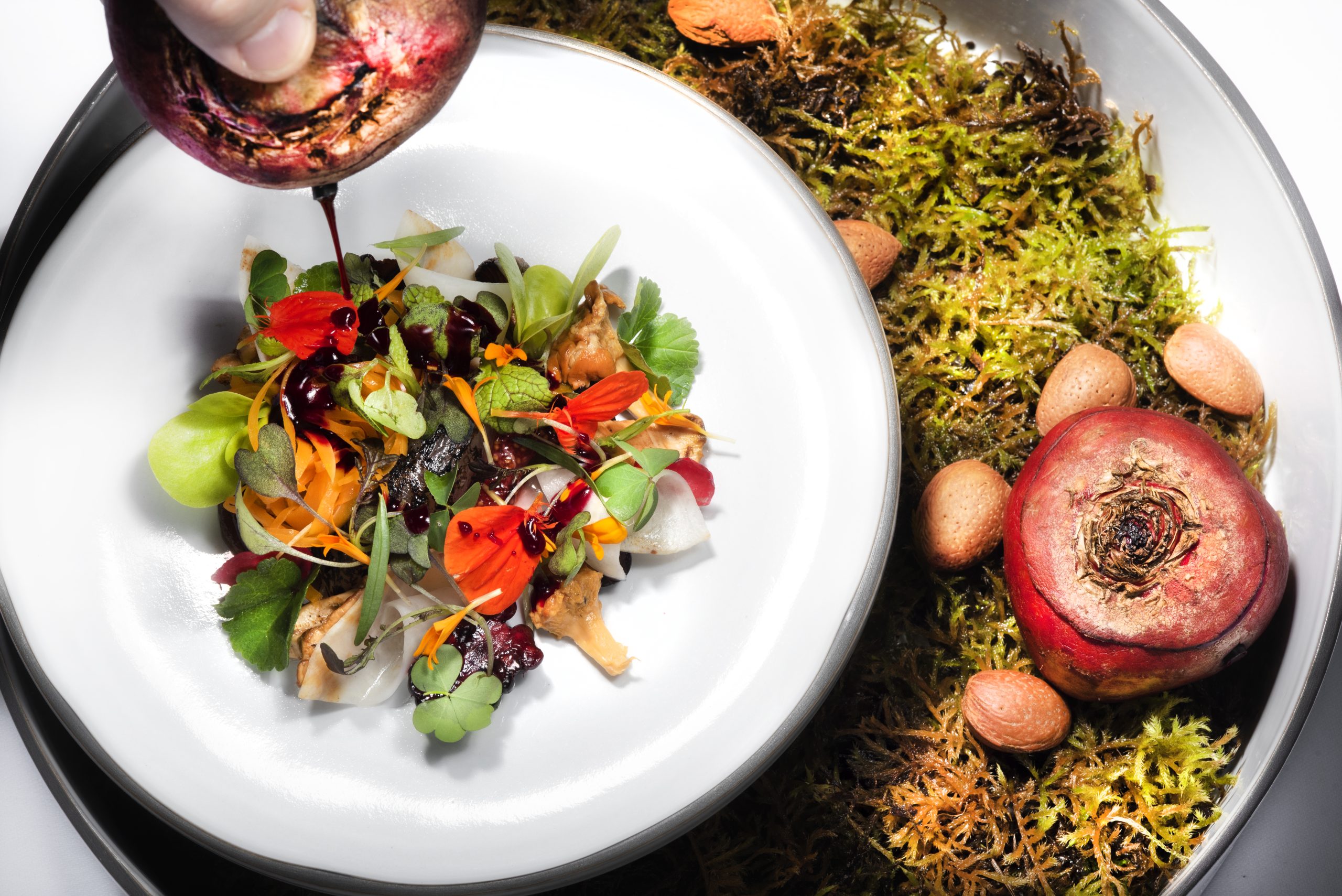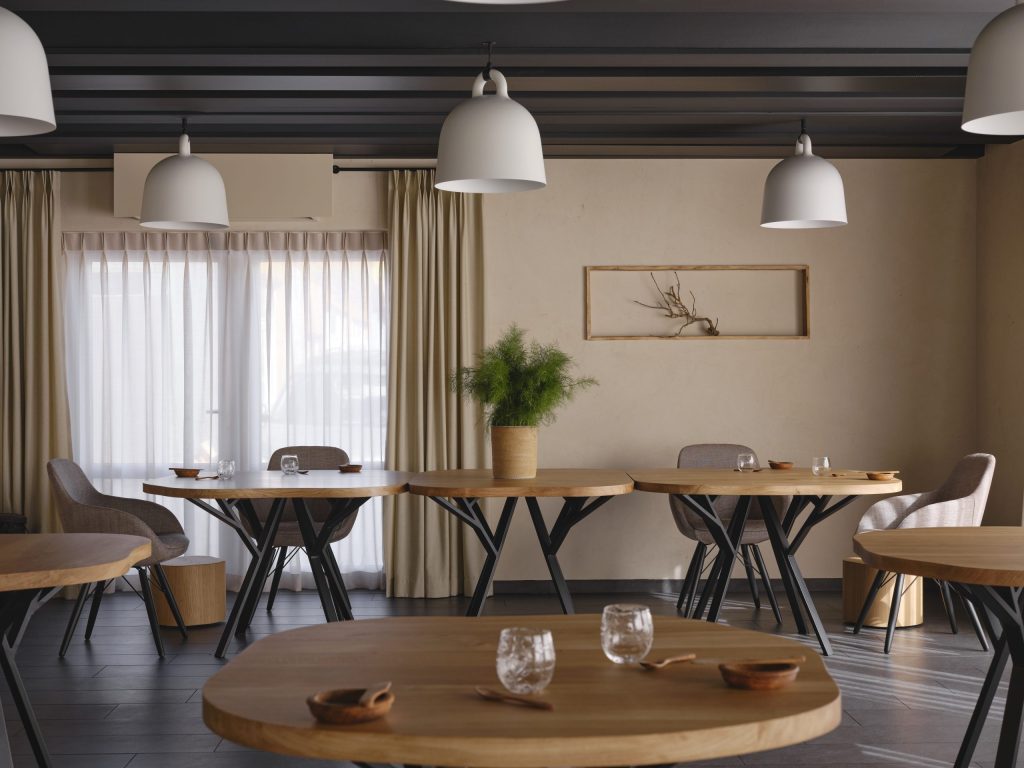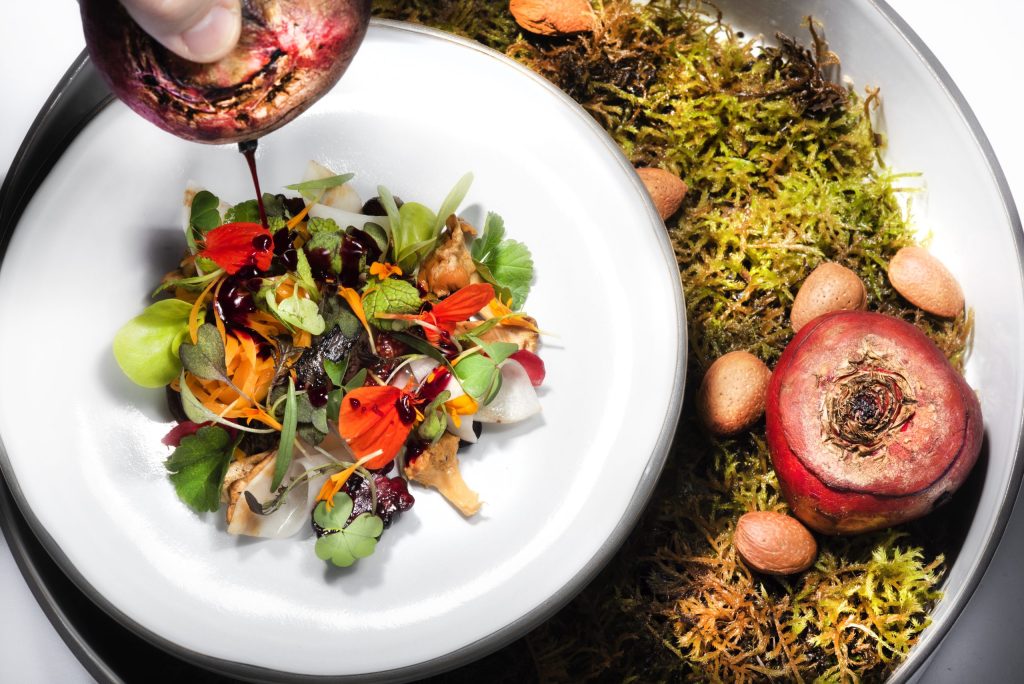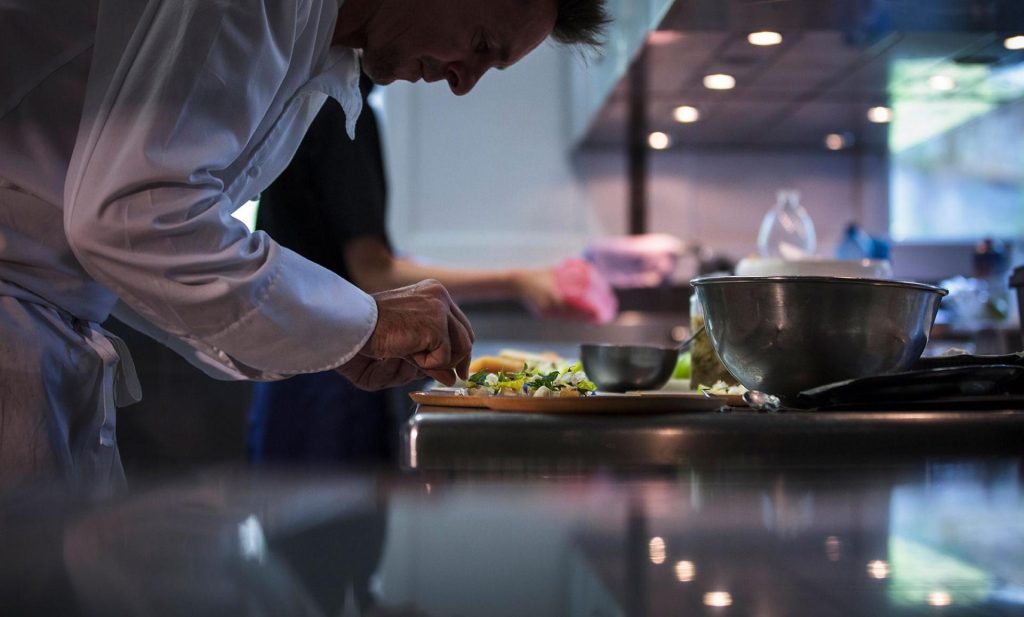
15 November 2023
Eco-conscious restaurants: eating well while respecting the planet
The trend in the catering industry is towards eco-responsibility. But what does this mean? What impact does this activity have on our environment? Find out how to identify an eco-responsible approach from an establishment and a selection of restaurateurs who practice an eco-conscious cuisine.
What is an eco-conscious restaurant?
Eco-conscious does not necessarily mean vegan: to be cooking in a way that is good for both the planet and our health does not necessarily mean that it has to be vegetarian or vegan, but it is a cooking style that offers seasonal and local vegetables on the menu. A restaurant with the eco-conscious label therefore represents a menu offer made from fresh, local products.
Calling on local producers allows us to use short circuits, thereby avoiding long-distance transport, which has a positive impact on the environment. What’s more, using seasonal and local products means that our food is closer to our needs, and our cooking is just as tasty.
Eco-conscious chefs are also committed to avoiding food waste, both on the plates and in the preparation of their menus: reducing waste, recycling peelings… while honouring authentic, local cuisine in the tradition of French cuisine.
Different levels of commitment
There are different levels of commitment for a restaurant to adopt an eco-conscious approach: favouring short circuits, using organic products (organic food and cleaning products), limiting waste and the use of single-use plastics, reducing food waste, and so on. All with the aim of reducing our carbon footprint and our impact on the environment.
Actions to promote eco-conscious gastronomy are being taken all over the world. In Italy, for example, the birth of the Slow Food concept by an Italian culinary journalist, Carlo Petrini, in the 1980s, which is still relevant today, advocates ‘good, clean and fair’ food. In other words, food that is tasty and nutritious, clean and respectful of the environment, and fair for the producer, who is guaranteed a return commensurate with the quality of his produce. The movement was born in opposition to the development of fast food.
Eco-conscious restaurant labels
Restaurants defined as eco-conscious have been awarded a number of labels as part of their sustainable development approach. Obtaining these labels is more than just an affiliation, it represents a genuine commitment by these chefs of French gastronomy.
GREEN FOOD
The Green Food label is awarded to establishments that adhere to the Green food charter. This label, created in 2018 by two people from Nantes, groups together around ten criteria – local/organic products, sorting, ecological products, reuse of organic waste, energy, etc. – on which establishments are assessed. The restaurant must meet at least six of these criteria to be awarded the label.
ECOCERT
Ecocert has been fighting for the environment since 1991. The Ecocert certification is awarded to farmers offering products originated from biological agriculture. In 2013, the Ecocert “in the kitchen” label was created and awarded to restaurants using only organically produced products, as well as to collective catering, with the aim of encouraging local consumption and the preparation of canteen menus using fresh, local and organic products.
ECOTABLE
The Ecotable label rewards and promotes eco-conscious restaurants by awarding them ecotable badges:
– Veg for a 100% vegan restaurant
– Vegg for a 100% vegetarian restaurant
– Bio for a cuisine based essentially on products from organic farming
– F for flexitarian
– WB for Wanna bio, for committed establishments
– L for Locavore: as the name suggests, favouring local products
– Z for Zero waste
– TF for Tupper friendly: for establishments offering doggy bags so that you can take your leftovers home and finish them the next day
– O for Ocean Friendly: for establishments serving seafood products
LE COLLEGE CULINAIRE DE FRANCE
Chaired by Alain Ducasse and Alain Dutournier, the Collège Culinaire de France is a militant community that brings together more than 2,000 restaurants and 1,000 artisan producers. Its aim is to embody a new approach to culinary craftsmanship, one that breaks with the standardisation of production, catering and food. 100% independent, the Collège is financed by the commitment of its members, who contribute one euro a day. It also reveals and promotes the eco-conscious initiatives of its members.
But is it more expensive to eat well?
When we’re talking about the price of sustainable gastronomy, we assume that the bill will definitely end up being very costly. In reality, we pay no more than we would in any other establishment, since the price depends on the quality of the products used and the dishes prepared. With sustainable gastronomy, we eat better and we protect the environment.
A selection of eco-conscious restaurants
Many restaurateurs are concerned about and respect the environment. Increasingly, they favour short circuits and make room for local and/or organic farming. Teritoria invites you to explore the French regions and discover three of them.
An eco-conscious , locavore restaurant in the Grand-East of France

In Haut-Rhin, chef Jérôme Jaegle welcomes you to his restaurant, L’Alchémille, in Kaysersberg-Vignoble. A true culinary enthusiast with a family heritage in butchery, he brings fruits and vegetables from his own garden to the table, along with local products from the terroir and nearby producers. At his restaurant, you’ll discover an evolving and inventive cuisine that changes daily with the harvest, bringing fresh, seasonal ingredients from the garden straight to your plate.
Seasonal cuisine in an eco-conscious restaurant in Auvergne-Rhône-Alpes

In Grignan, in the Drôme, chefs Benjamin Reilhes and Glenn Viel await you at Le Clair de la Plume restaurant. Together, they offer a seasonal menu featuring both gourmet and bistro-style dishes. They are constantly on the lookout for local ingredients to elevate and delight your palate. Their cooking is passionate, creative, and rooted in a commitment to generosity and flavor.
Eating eco-friendly in an eco-conscious restaurant in Occitanie

Cyril Attrazic, chef of Restaurant Cyril Attrazic Chez Camillou in Aumont-Aubrac, welcomes you to the heart of the Lozère region. His cuisine is deeply inspired by the surrounding landscape, as he’s a native of the Lozèez region, closely rooted with the local life. His creations take you on a journey between tradition and modernity, featuring seasonal vegetables and fresh, local ingredients. His passion has been driving him since 1998, when he took on the role of chef in this family-run establishment, now carried forward through four generations before him.
Conclusion
In conclusion, adopting a responsible approach to our culinary choices is more than a trend—it’s a commitment to our planet. Eco-conscious restaurants, through their sustainable practices and support for local producers, play a crucial role in promoting food that respects both the environment and our health. Teritoria is a valued ally for those seeking to combine gastronomic pleasure with eco-responsibility. By highlighting a selection of dedicated, human-scale establishments across Europe, Teritoria embodies a sustainable approach to hospitality.
One of Teritoria’s strongest commitments, underscoring its role as a pioneer in promoting responsible tourism, is the requirement for all member establishments to calculate their carbon footprint with Clorofil. Choosing a restaurant within the Teritoria community means opting for a culinary experience that celebrates local, seasonal ingredients and sustainable practices, while contributing to a more circular economy that respects local ecosystems.
By subscribing to the Teritoria newsletter and exploring our gift shop, you’re taking another step towards conscious consumption, while delighting your taste buds with authentic, responsible flavours.


